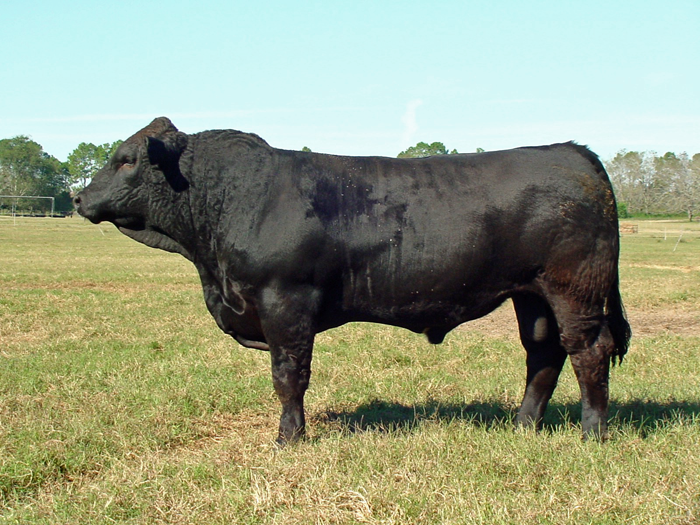
The fall breeding season starts soon, so asses your bull battery, contact your veterinarian to make arrangements for a breeding soundness exam, and start searching if replacement bulls are needed from area breeders. Photo credit: Doug Mayo, UF/IFAS Extension.
Glenn Selk, Oklahoma State University Emeritus Extension Animal Scientist
The fall breeding season starts very soon. If you have not assessed your bull battery recently, time is slipping away. Contact your large animal veterinarian to make arrangements to see that your bulls of all ages pass a breeding soundness exam. In addition, ask your veterinarian about the need for a trichomoniasis test. If the bulls’ feet need to be trimmed, this would be an excellent opportunity to get that done as well.
Bulls that do not pass a breeding soundness exam will need to be replaced before the start of breeding. Purchase the replacement from a production sale or nearby seedstock producer as soon as possible. Make sure they have passed a breeding soundness exam as well. It is advantageous to move the bull to his new environment several weeks before breeding.
Also a commonly asked question is the cow to bull ratio for young bulls. The old rule of thumb is to place the young bull with about as many cows as his age in months. Therefore the true “yearling” would only be exposed to 12 or 13 females. If he is a year and a half old (18 months), then he should be able to breed 15 – 18 cows. By the time the bull is two years of age, he should be able to breed 24 or 25 cows. Realize that tremendous variability exists between bulls. Some are capable of breeding many more cows than what is suggested here. AND sadly enough, a few bulls will fail when mated to a very few cows. Hopefully, a breeding soundness exam and close observation during the first part of the breeding season will identify those potential failures.
Bulls that will be placed together in multi-sire breeding pastures should be penned together for several weeks before the breeding season begins. Bulls WILL establish a social order. This needs to be settled before the first of the breeding season. We would prefer that cows are getting bred during the first part of the breeding season rather than bulls fighting each other.
Bulls are a sizeable investment in most cow-calf operations. Common sense management before the breeding season can give the best possible return on that investment.
—
For more information on this topic, use the following publication links:
Considerations for Selecting a Bull
Nutritional Management of Bulls
Florida Bull Test Sale – January 19, 2019
- Federal Estate Tax and Gift Tax Limits Announced For 2026 - December 19, 2025
- Why Do I Have So Many Open Cows? Causes of Reproductive Failure - December 19, 2025
- Wiregrass Cotton Expo Offers Resources, Research, & Real Solutions for Growers in Southeast – January 22 - December 19, 2025
